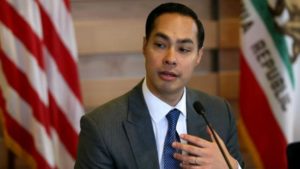
Hispanic students face an uphill battle in entering and succeeding in secondary education, according to lawmakers and experts attending an event hosted yesterday by Excelencia in Education, Gallup and The Hill.
Gaps in achievements between Latino and white students have come to the forefront with the No Child Left Behind law. “One very important positive occurred as a result of that legislation, which was hated by so many people for so long. The positive is that it forced America to at least grapple with the huge achievement gaps that exist in American public education between kids living in poverty and other kids, between kids of color, including Latino students, and Anglo students” said Sen. Michael Bennet (D-Colo).
According to Rep. Joaquin Castro (D-Texas), those gaps are heightened by the fact that many Latino students come from underserved schools, but also because they don’t receive adequate guidance at higher levels. Another Representative, Will Hurd (R-Texas), echoed Castro’s thoughts and said schools need to provide that guidance, especially for underprivileged students who may not find it at home.
However, the “guidance process” is tricky, as counselors have to navigate a fine line between serving the students’ future economic interests and not suppressing their personal aspirations.
Also holding back educational achievements are outdated measures of success, like high school graduation rates. These often force underprivileged students with high academic aspirations to choose between taking on expensive student loans and starting their university education through community colleges, which are often underfunded, but they provide access to higher education.
Castro said Hispanic students should see student loans as an investment; “Anybody that’s carrying student debt knows that there’s this fear that you’re going to be unemployed and not be able to pay back a loan,” he said. “But at the same time, you have to understand that just as you would buy a car, or a house, or something else, that it’s an investment in your future.”

Recent Comments